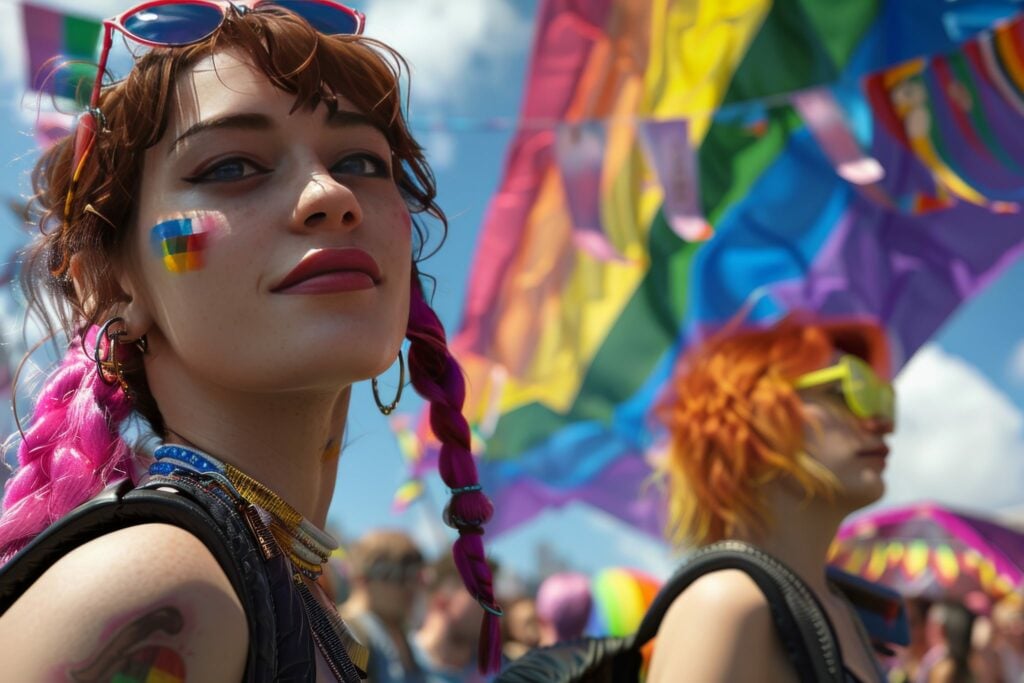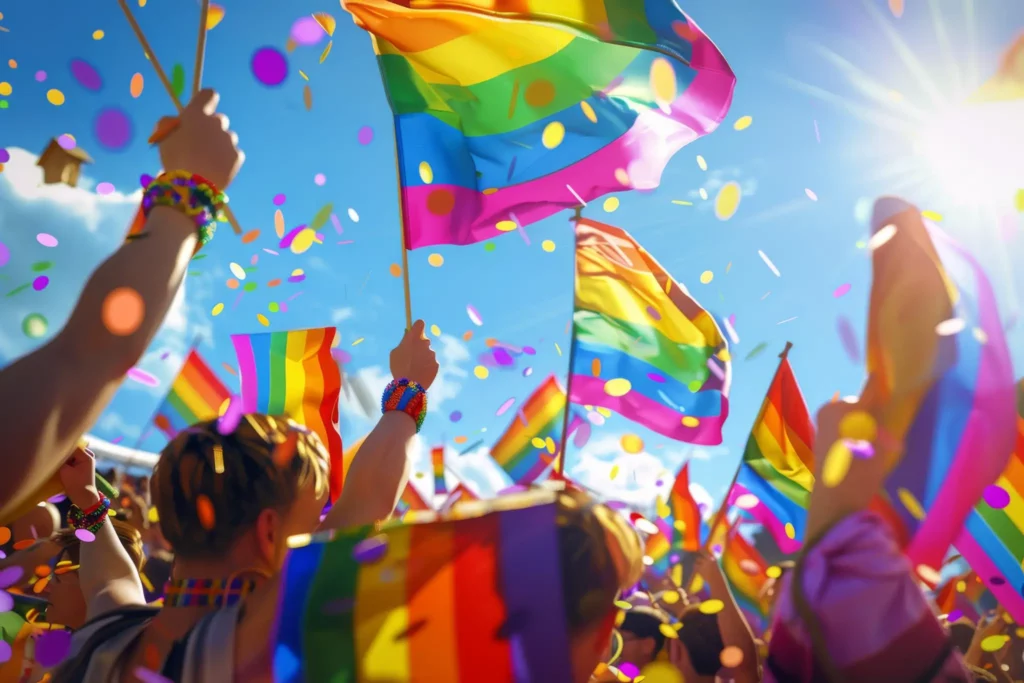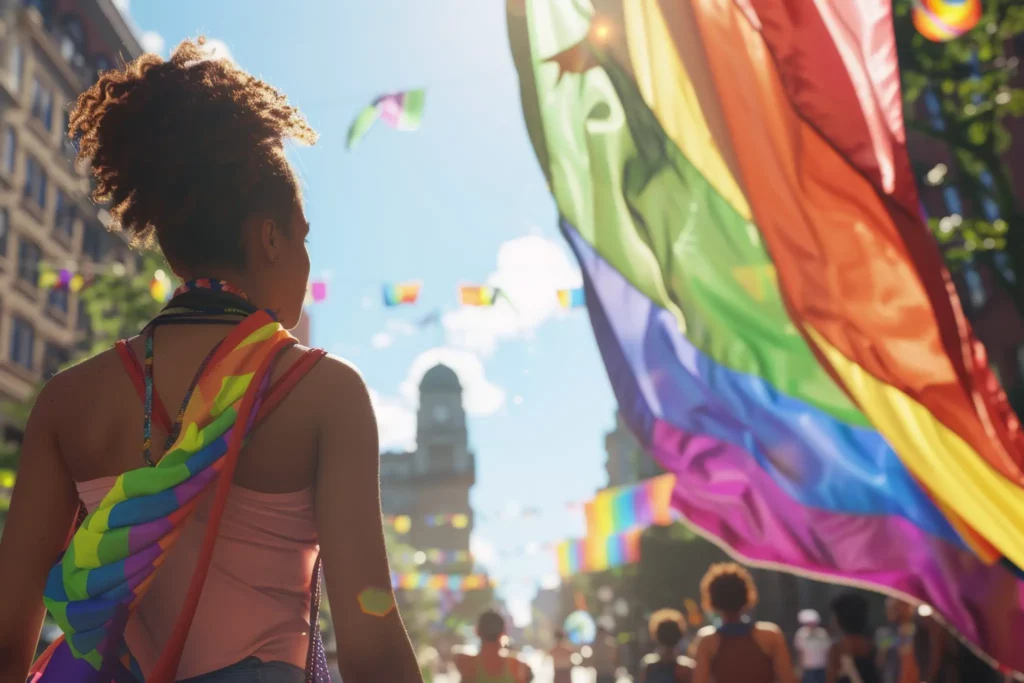People who identify as “abros3xual” are opening up on social media, sharing insights into what their fluid s3xuality means to them.
Social media is buzzing with individuals sharing and exploring their identities, and recently, “abros3xuality” has become a topic of growing interest.
A growing number of users on platforms like TikTok, Twitter, Instagram, and Reddit are sharing their experiences as abros3xual, sparking curiosity and conversations and creating a wave of awareness around the topic.

What Does It Mean to Be Abros3xual?
The term abros3xual refers to a fluid s3xual orientation where a person’s experience of attraction can change over time.
According to Healthline, an abros3xual individual may feel attracted to a particular gender at one time but later experience attraction differently or even feel little to no attraction at all.
Abros**uality stands out from other s**ual orientations due to its fluid nature, which often shifts over time, unlike the typically stable patterns seen in other orientations.
According to Healthline, abros**uality isn’t about simply “changing your mind” or selecting new labels. Instead, it represents authentic shifts in the intensity and direction of a person’s attractions.
Healthline explains that the prefix “abro-” translates to “delicate” or “graceful,” reflecting how attraction can evolve over time for individuals who identify as abros3xual.
In a piece for Metro, abros3xual writer Emma Flint recounted her personal journey: “One day, I felt like I was a lesbian, but days or weeks later, I’d identify more with bis3xuality. My s3xuality was fluid.”
She described that prior to discovering abros3xuality, these shifts left her feeling “lost” and somewhat isolated, as though she were “adrift at sea.”
Thus, the term abros3xuality has emerged as a vital label for individuals whose attractions frequently change, offering validation for experiences that once caused confusion for many.

The Rising Awareness of Abros3xuality on Social Media
The dialogue around abros3xuality has intensified in recent years, despite the term being present online for a while. In 2021, Michelle Visage, a judge on RuPaul’s Drag Race, shared the abros3xual pride flag on her Instagram, significantly increasing awareness of the term.
The abros3xual pride flag, consisting of five colors—dark green, light green, white, light pink, and dark pink—was reportedly first introduced on Tumblr in 2013, though its creator remains unidentified.
In 2024, as discussions about gender and s3xuality evolve, individuals are increasingly sharing their personal experiences with abros3xuality, fostering deeper conversations about s3xual fluidity.
Online forums provide a platform for people to ask questions and exchange knowledge, helping to integrate terms like abros3xuality into mainstream dialogue.

Abros3xuality Compared to Other S3xual Identities
Although abros3xuality is occasionally mistaken for terms like as3xuality, it has a distinct definition.
As3xuality typically refers to individuals who experience minimal or no s3xual attraction, while abros3xuality encompasses fluctuations in attraction over time, which may include phases where one feels as3xual.
Healthline points out that an abros3xual individual might feel “attracted to men and only men” one day and then “to women and only women” the next, or they may go through periods of experiencing little to no attraction at all.
Like other identities within the spectrum, abros3xuality illustrates that s3xual orientation can be fluid and is not limited to a singular experience.
Additionally, some individuals identify as both as3xual and abros3xual, experiencing fluctuating moments of attraction that occur alongside prolonged periods of low or no attraction.

Guidance for Individuals Exploring Abros3xuality
For those examining their s3xuality, abros3xuality serves as a testament to the fluidity of identity.
Individuals who are questioning or discovering their orientation should understand that it’s completely normal to feel uncertain.
Experimenting with one label doesn’t mean it’s permanent; as people gain a deeper understanding of themselves, they may find that new terms resonate more accurately with their experiences.
S3xuality is a deeply personal journey, and self-discovery often requires time and introspection.
The increasing dialogue surrounding abros3xuality contributes to a wider acceptance of diverse s3xual orientations.
As abros3xuality gains more recognition, individuals can find solace in knowing their experiences are shared by others, fostering a stronger sense of community and promoting acceptance of fluid identities.





